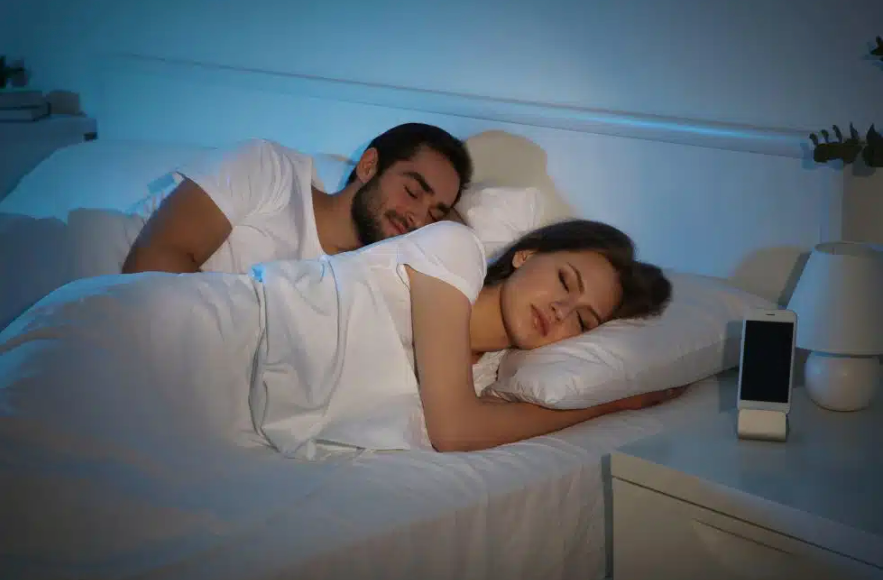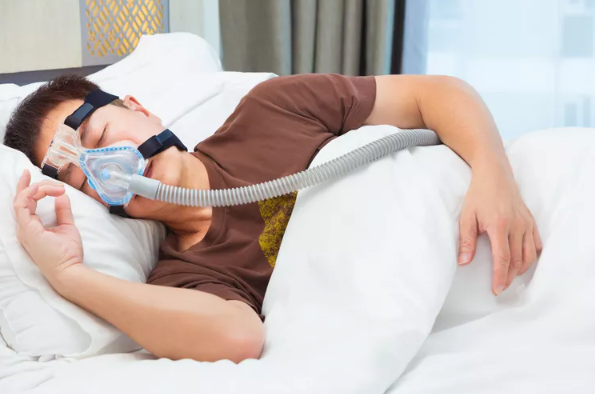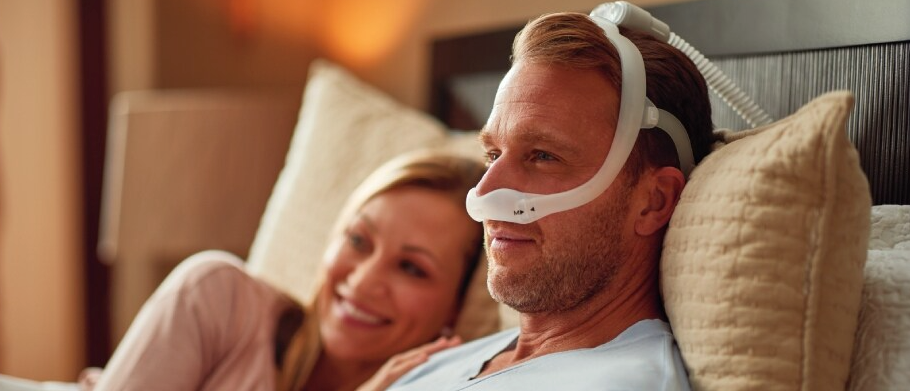In the case of many patients, your first consultation to your Sleep Cycle Center team may be their first opportunity to talk about their health issues with a professional in sleep as well as a possible first point to have an apnea test. This could be a daunting moment for some people as they begin the first steps towards resolving sleep problems and issues, such as various sleep disorders. In order to answer any concerns the patients ask, the staff of Sleep Cycle Center Sleep Cycle Center has been invited to address the top questions asked by sleep apnea sufferers with a focus on the signs and the symptoms to look for! These are the most commonly asked questions and could offer some insight regarding how to deal with apnea effectively.
Can You Diagnose Sleep Apnea on Symptoms Alone?
One of the most difficult tasks for sleep clinics as well as their teams of diagnostics is to identify the most common symptoms and signs of apnea. This is because the conditions often cross-reference with the symptoms seen in other conditions. Consider, for instance, the many different ailments which can cause headaches, fatigue or mood fluctuations and mood changes. There’s a lengthy list of patients to choose with! Also, it is important take into consideration a patient’s unique perception of these symptoms because one person’s pain rating for a headache could vary from one person’s. Additionally, the process for diagnosing sleep apnea generally requires a thorough investigation of the patient’s sleep habits and the physiological reactions during sleeping.
The Importance of Formal Sleep Apnea Testing
It is the reason, while it is possible to use the symptoms of the screening process in order to identify an apnea-related issue and schedule further testing but it’s impossible to develop a solid diagnosis based on symptoms by itself. The most important thing for patients who is presenting with sleep apnea signs to undergo the official screening and testing procedure to make sure they get a correct diagnosis, so that they receive the proper medical attention to treat the issue effectively. In addition, experts often perform certain tests to verify that the apnea symptoms comprise a variety of crucial factors such as health history, lifestyle as well as the observed sleeping patterns.

What is The Difference Between Mild and Moderate Sleep Apnea Symptoms?
As with many other medical conditions Apnea is one of the most common medical conditions that can be manifested in a variety of methods, from the smallest to the highest the severity. This is evident especially in the context of common sleep issues which patients suffer from. When the diagnosis is established the diagnosis will be scored as mild, moderate or extreme to aid our team as well as the others we consult with to determine the best procedure and consequences this may impact other medical conditions. In addition, when contemplating treatments, it’s essential to consider a variety of options, for instance, dental appliances particularly for those suffering from sleep apnea that is obstructive, in order for effective management and possibly reduce the symptoms.
Reported Apnea Symptoms Are Still An Important Part Of Our Investigations

Reporting symptoms is one of the numerous factors we consider to determine whether an apnea diagnosis is between mild and severe and combining these findings with more reliable findings gathered in sleep studies that are formal. When we’ve gathered all the patient’s information needed for confirmation of a diagnosis we’ll evaluate their symptoms using the Apnea Hypopnea index. It scores the number of the number of episodes of apnea as well as hypopnea in an hour of an investigation of sleep.
The scoring ranges in the following categories:
- 5-14 for moderate
- 14-29 is for moderate
- 30+ to be considered for severe
In general, we’ve observed that an increase in the frequency of symptoms for example, snoring fits or waking having a headache in the morning is also increased in the case of the higher AHI scores. In addition to these signs the obstructive sleep apnea (OSA) can be diagnosed during these tests and is often associated with periods of total or partial airway obstruction when you sleeping. When this happens the use of dental procedures can help. Actually, dental dentists have come up with a variety of strategies to treat and reduce the symptoms of sleep apnea, such as using an oral appliance that helps maintain an unimpeded, open airway when you the night. The oral appliance is especially helpful for individuals who snore frequently or are diagnosed with moderate or mild sleep apnea that is obstructive and offers a different option to those struggling with different treatments.
Do Patients With Untreated Sleep Apnea Have Different Symptoms?

In the first place, having untreated sleep apnea could pose multiple health hazards and complication which can include the onset of new symptoms, as well as the development of various medical conditions. If you don’t get the right treatment are likely to have more severe and frequent symptoms than patients receiving management for their condition. In fact, they could even overcome certain symptoms of apnea totally! The introduction of dental products have led to significant improvements in the treatment of this condition.
In That Case, What Are The Risks of Ignoring Symptoms?
Despite advancements in understanding and research into sleep, as well as the development of the diagnosis for sleep apnea there is a chance that around 80percent of US people suffering from OSA remain undiagnosed. Sleep apnea is a cause of numerous serious health issues such as cardiovascular disease and poor quality of life as well as mental health problems as well as diabetic issues, sexual dysfunction and a higher risk of personal injuries. If there is no appropriate treatment or control of the issue the chance of developing additional health problems increases significantly, based upon the severity of sleep apnea. Another aspect that’s often considered in dentistry, specifically when it comes to treating obstructive sleep apnea symptoms, is the use of an oral device specifically designed to decrease the risk of snoring as well as improve the flow of air in the night, which can improve the overall quality and efficiency of rest.
Will I Still Have Sleep Apnea Symptoms After Commencing Treatment?
Our team has worked on Apnea patients over time and we know the result of treatment differs for each patient. In general the majority of patients experience positive improvement to the following signs after beginning treatment
- A decrease in frequent and loud sleep episodes.
- A decrease in the frequency of episodes of apnea, which means less interruption in sleeping.
- Increased energy levels because you wake early in the evening.
- Less headaches in the morning due to the stabilization of oxygen levels throughout the body.
- Enhanced focus and cognitive function when sleep quality is improved
- Blood pressure control and lower risk of cardiovascular disease.
The majority of those who are responsive to treatment tend to have less symptoms. However, this can vary between individuals.
I’m Undiagnosed. What Signs of Sleep Apnea Are Often Missed?
Unfortunately, a lot of sleep apnea signscan be missed or not properly diagnosed. Continuous research and training in sleep science has helped in improving this process and easing the process of diagnosing, however symptoms of sleep apnea remain often ignored. Some symptoms are more difficult to detect as opposed to others. There are some symptoms that people aren’t even aware that about until they’re when they are undergoing an investigation! Here are some of the most unusual signs of apnea in the following table:
- Apneas with a silent symphony, when breathing becomes disrupted, but without any typical abrupt, loud breathing pattern that is indicative of apnea.
- The term “microawakening” refers to the time when a sleep apnea event is that it is short, the patients might not realize they awakened during the night, but have issues related to daytime fatigue.
- Urination frequency during the evening due to hormonal imbalances due to apnea-related episodes. The condition is frequently misdiagnosed as a medical condition.
- Stomach disorders that are commonly blamed on IBS or GERD may be the cause of an imbalance in hormones that is caused by interrupted periods of rest.
- Changes in mood are usually related to mental health problems and symptoms like insomnia prior to sleep apnea being thought to be. This can cause more complications related to apnea. such as depression, or insomnia medication could result in sedative-like effects, increasing the frequency of breathing disturbances.”

